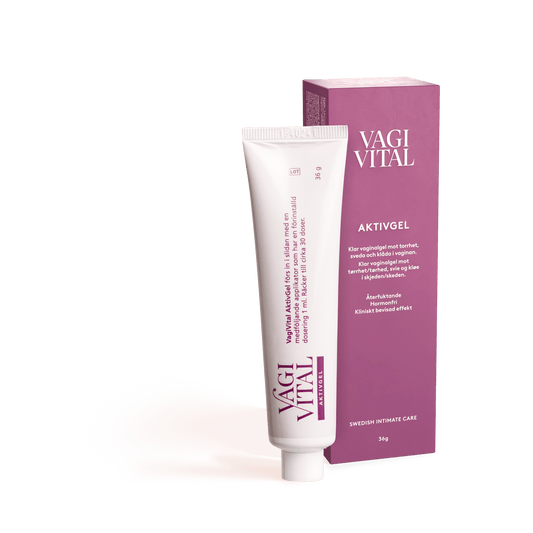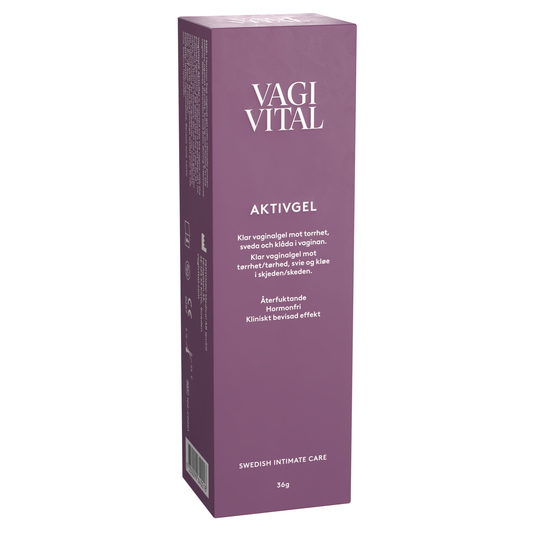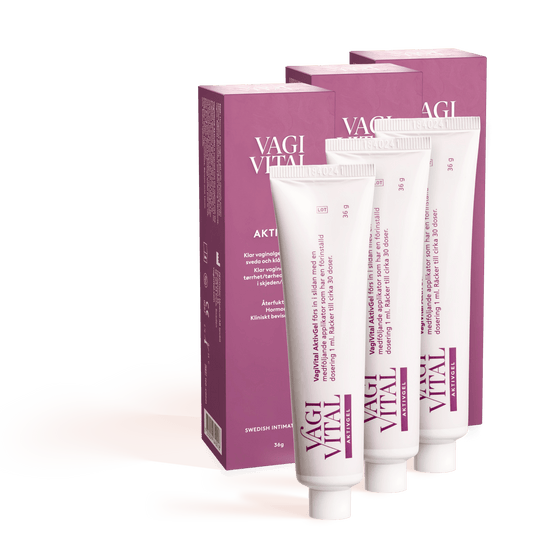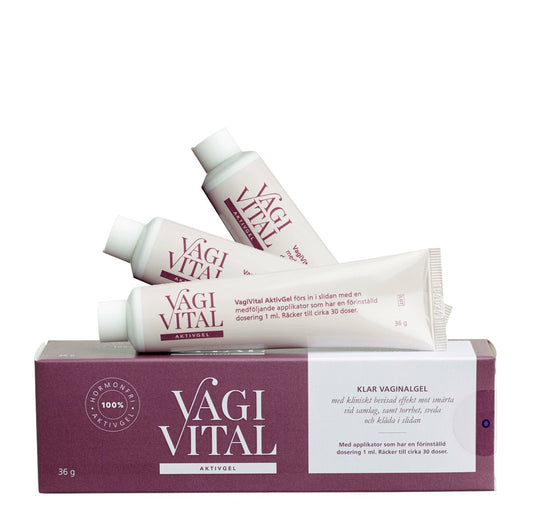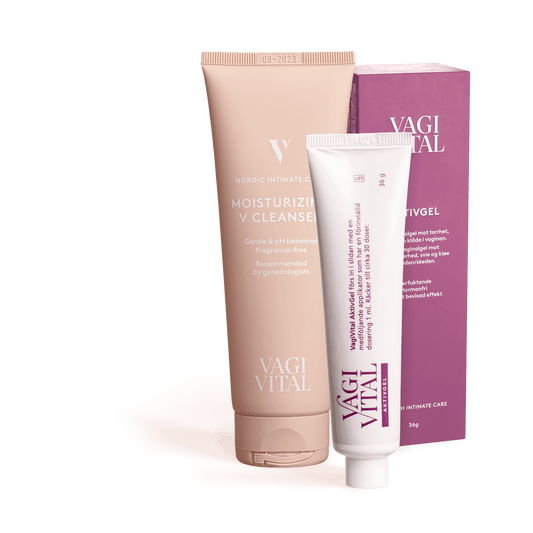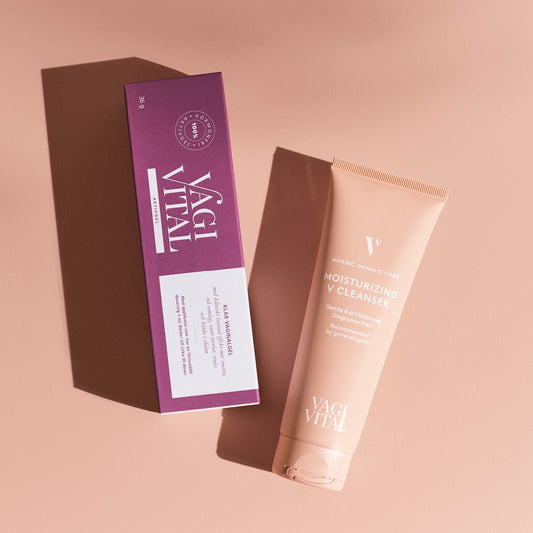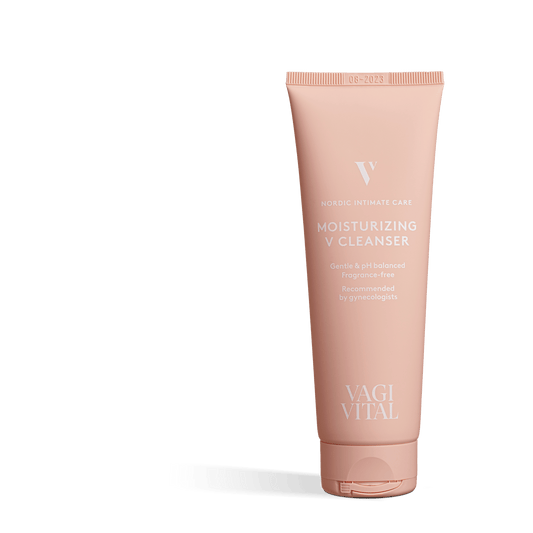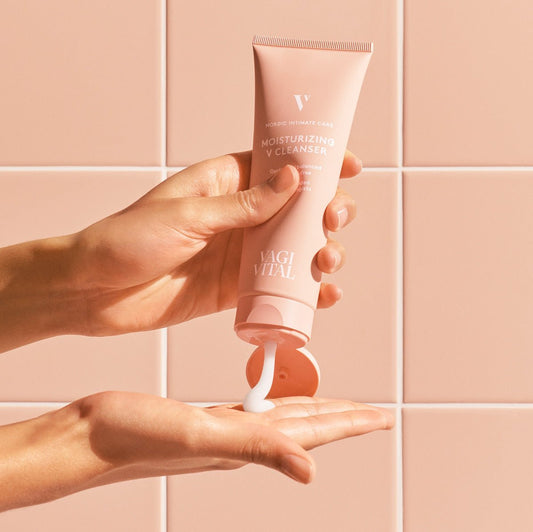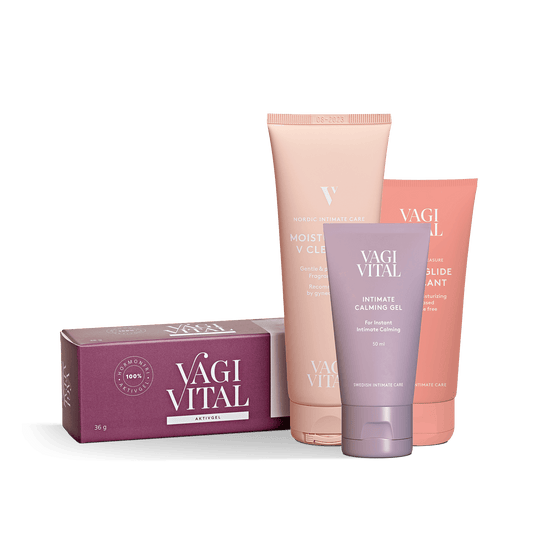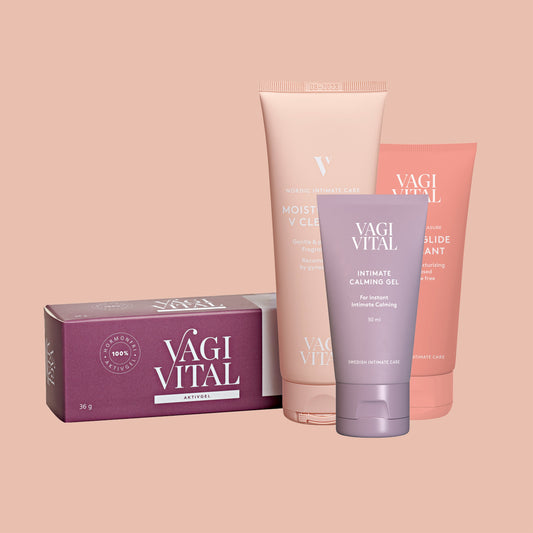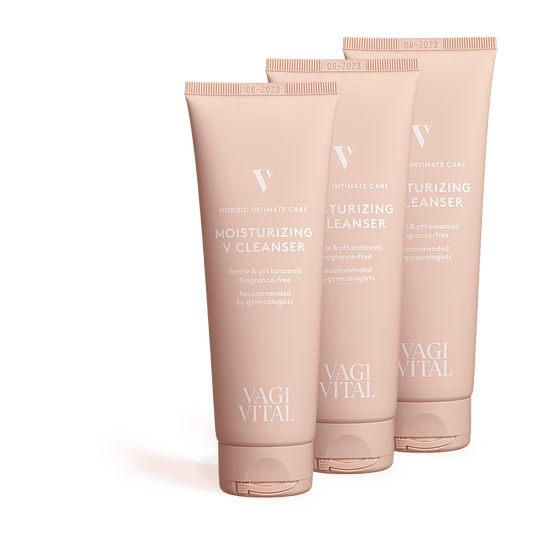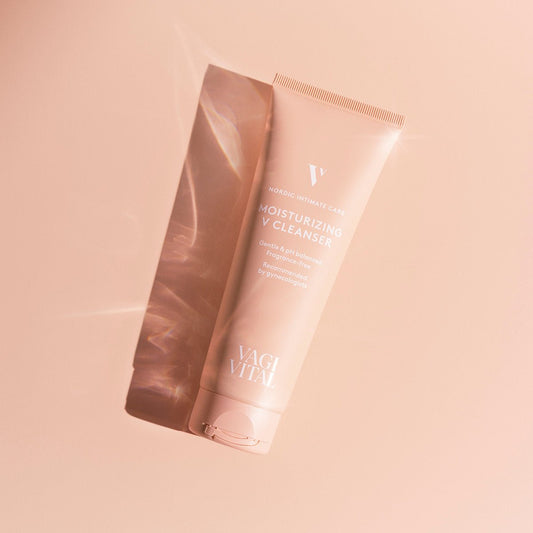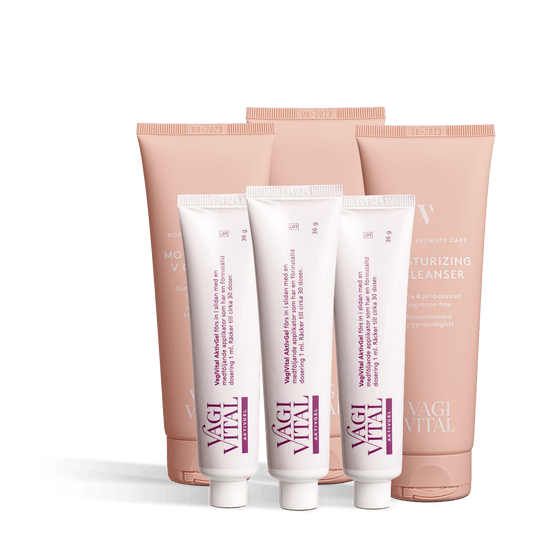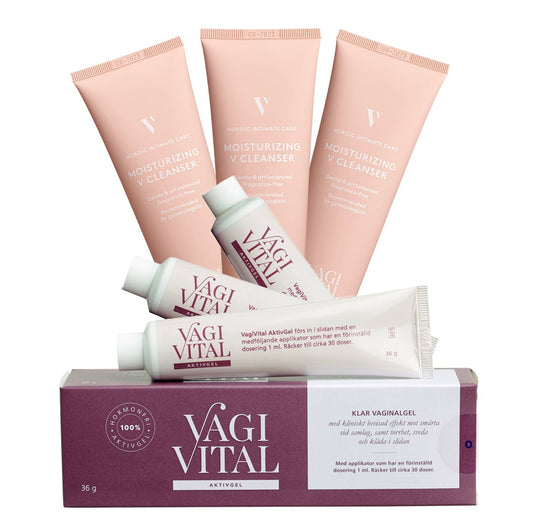Do natural intimate creams work as well as estrogen-based creams?
The market for intimate creams can be confusing. We already know that it is important to only use gentle and adapted creams for your genital area, but you also need to choose which of these suit you and your body.
This article will focus on two types of creams: estrogen-based creams and natural creams. The word “natural” in a product name can sometimes spread the perception that the cream would not be as effective, but that is not true.
So to answer the question that the article's title is named after – the answer is yes: natural creams work just as well as estrogen-based creams. But that's not all, in many cases natural creams can be a safer choice, which means that for many women it can be a better option instead of an estrogen-based cream.
Estrogen-based creams
These types of intimate creams are usually recommended for women who suffer from vaginal dryness due to low estrogen levels. This is common for women going through menopause.
When estrogen decreases in the body, the layer of cells in the genital area can become thinner, which can lead to dryness, itching, and pain during intercourse. In short, declining estrogen levels can contribute to uncomfortable sensations in the genital area.
Menopause is the most common cause of declining estrogen levels, but low estrogen can also be due to a hysterectomy or chemotherapy or similar radiation treatments that have been applied to the pelvic area.
Estrogen-based creams are a safe hormone therapy method because less estrogen enters the bloodstream. However, it is important to remember that it is still possible for estrogen to be absorbed into the body through the genital area.
This type of cream is recommended for people with declining estrogen levels, but if you are pregnant or breastfeeding, you should avoid estrogen-based creams. If you become pregnant while using an estrogen cream, you should stop using it immediately.
Natural intimate creams
Natural intimate creams consist of natural ingredients without hormones and are designed to counteract vaginal dryness. That a cream is natural does not mean it only provides an immediate lubricating effect, but it can also help with long-term solutions to vaginal dryness, completely without needing to use estrogen to combat the problem.
Natural intimate creams are an option for pregnant women who suffer from vaginal dryness, which is a common pregnancy ailment (among a whole bunch of ailments one has to endure during pregnancy). If you need to stop your estrogen cream treatment or plan to become pregnant in the near future, a natural intimate cream can be a safer option for you and the baby.
One more thing to consider is that not everyone who suffers from vaginal dryness does so because of declining estrogen levels. Sometimes vaginal dryness can be due to allergies or medications you are taking. If that is the case, estrogen-based creams are not effective because the problem is not due to declining estrogen levels, and giving the body more estrogen when it does not need it can lead to other complications in the future, a serious one being breast cancer.
Check the active ingredients
There are several common active ingredients that you can find in natural intimate creams, but let's look at two of these and how they affect vaginal dryness.
Benzoic acid
Benzoic acid is a substance that has many benefits for the genital area. First and foremost, it is moisturizing but it can also improve the skin barrier function in the genital area, which facilitates the skin's ability to retain moisture. In short, benzoic acid works by improving the genital area's ability to retain moisture, which means reduced dryness.
Benzoic acid is also a preservative and helps to balance the pH value in the products it is used in, which is especially important for the genital area where changes in pH can lead to vaginal dryness and infection.
Lactic acid
Lactic acid is a type of carboxylic acid that is safe to use for pregnant and breastfeeding women. It is a water-based chemical exfoliator that increases cell turnover and contributes to smoother skin by removing dead skin cells, a task managed by the genital area's natural moisture but which does not occur for women suffering from vaginal dryness.
Lactic acid also helps to moisturize and maintain the skin barrier, which is important for improving the genital area's ability to retain moisture.
Estrogen-based VS. Natural creams
Both estrogen-based and natural creams can help and improve vaginal dryness and restore moisture in the genital area. However, it is important to remember that a natural cream does not require the same considerations as an estrogen-based cream, as these must be used with greater caution in certain situations.
If you are looking for the best estrogen-free treatment for menopausal symptoms, a natural cream is the perfect choice. Don't know where to start? VagiVitals Active Gel Relieves and cures dryness in the intimate area, completely without hormones.
References
Lee, K. et al. A study of facial wrinkles improvement effect of veratric acid from cauliflower mushroom through photo-protective mechanisms against UVB irradiation. Arch Dermatol Res (2016)
Smith, W. (1996). Epidermal and dermal effects of topical lactic acid. Journal Of The American Academy Of Dermatology, 35(3), 388-391. doi: 10.1016/s0190-9622(96)90602-7
Recommended products for you
- Choosing a selection results in a full page refresh.
- Opens in a new window.
